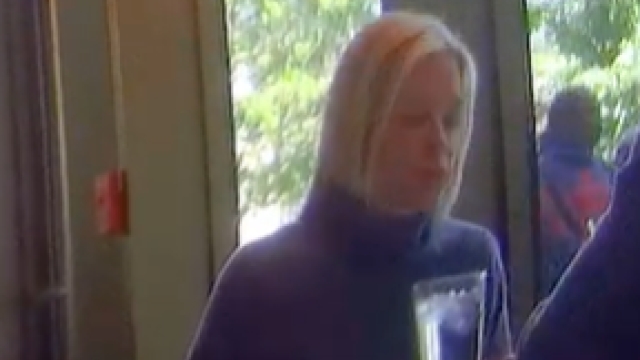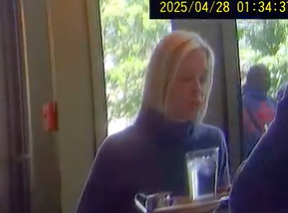
XMN News Exclusive: James O’Keefe’s Recording of Attorney General Pam Bondi Raises Legal Questions

Washington, D.C. — A recent revelation by James O’Keefe involving U.S. Attorney General Pam Bondi has not only exposed sensitive information about the Jeffrey Epstein case but also potentially placed O’Keefe himself in legal jeopardy. On April 28, 2025, Bondi was covertly recorded discussing “tens of thousands of videos of little kids” related to Epstein, a detail that had not been publicly disclosed until days later. This recording, made in a D.C. restaurant to a complete stranger, has sparked a firestorm of controversy and raised questions about the legality of O’Keefe’s methods.
O’Keefe, known for his undercover journalism tactics, posted the details of this incident on X, revealing that Bondi’s conversation included critical information about the Epstein case that was not part of any official disclosure. The post states, “AG Pam Bondi Was Covertly Recorded on April 28, Revealing Previously Undisclosed Information About Epstein Regarding ‘Tens of Thousands of Videos of Little Kids’ to a Complete Stranger in a D.C. Restaurant. Yesterday, the AG Made an Almost Identical Statement Publicly After O’Keefe Media Provided a Quote of What She Said, in a Request for Comment.”
However, the method by which O’Keefe obtained this recording has come under scrutiny. Many states, including the District of Columbia, have laws requiring all parties to consent to being recorded in private conversations. The D.C. Wiretap Act, for instance, mandates that all parties must give consent before a conversation can be legally recorded. O’Keefe’s failure to obtain Bondi’s consent could constitute a violation of this law, potentially exposing him to legal consequences.
Legal experts have weighed in on the matter, with some arguing that O’Keefe’s actions might breach privacy laws. “Recording someone without their consent in a private setting, especially when that person is a high-ranking government official, is a serious matter,” said a source familiar with D.C. law. “This could lead to civil or even criminal penalties, depending on the circumstances.”
The timing of Bondi’s public statement on May 7, 2025, which closely mirrored the content of the covert recording, suggests that O’Keefe’s actions may have forced her hand. This sequence of events has fueled speculation about a potential cover-up or damage control effort within the Department of Justice, especially given the sensitivity of the Epstein case, which involves the sexual exploitation of over 250 underage girls and has drawn intense public and media scrutiny.
Bondi’s handling of the Epstein files has already been criticized for lacking transparency, with recent reports highlighting a botched release of related documents. This incident only exacerbates those concerns, as it raises questions about who else might have access to such critical information and whether the Department of Justice is adequately protecting the privacy and security of ongoing investigations.
O’Keefe’s post has ignited a broader debate about the ethics and legality of undercover journalism, particularly when it involves recording public officials without their consent. While O’Keefe has defended his methods as necessary to uncover the truth, the potential legal ramifications cannot be ignored. The American people, as O’Keefe notes, are demanding answers and accountability, but at what cost?
XMN News has reached out to O’Keefe Media Group and the Department of Justice for comment but has not received responses at the time of publication. As this story develops, the implications for both O’Keefe and Bondi remain uncertain, but one thing is clear: the intersection of journalism, law, and public interest has never been more complex.
